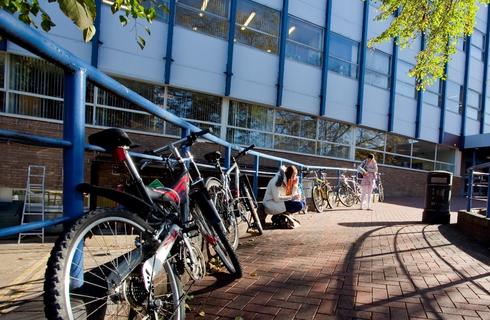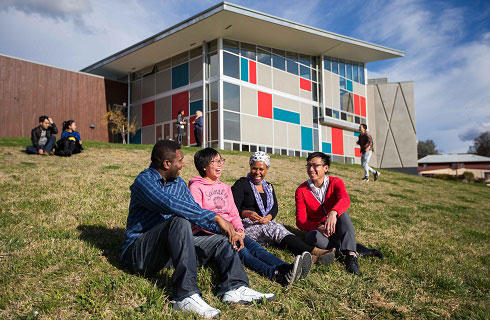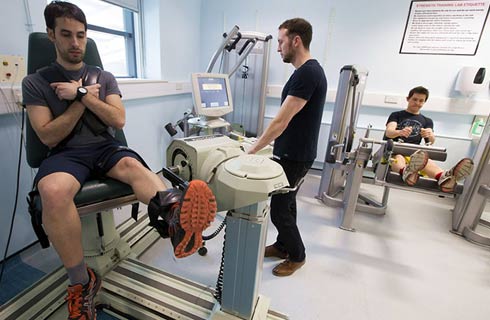- IDP China>
- 课程库>
- 自然科学>
- 自然科学与物理学>
- 地球科学>
- Bachelor of Music and Bachelor of Science [Conjoint] - Earth Sciences - Earth Surface Processes Pathway
Bachelor of Music and Bachelor of Science [Conjoint] - Earth Sciences - Earth Surface Processes Pathway

学历文凭
Dual (Conjoint) Degree

专业院系

开学时间

课程时长

课程学费

国际学生入学条件
IELTS Academic - 6.0 (No bands less than 5.5)
TOEFL iBT - Overall score of 80 and a writing score of 21
TOEFL PBT - Overall score of 60 and a writing score of 21
IDP—雅思考试联合主办方

雅思考试总分
6.0
- 雅思总分:6
- 托福网考总分:80
- 托福笔试总分:550
- 其他语言考试:Michigan English Language Assessment Battery (MELAB) - 80
CRICOS代码:
申请截止日期: 请与IDP联系 以获取详细信息。
课程简介
相关申请
 预科
预科 奖学金
奖学金 实习机会
实习机会 在校学习
在校学习 跨境学习
跨境学习 校园授课-线上开始
校园授课-线上开始 在线/远程学习
在线/远程学习
开学时间&学费
学费信息仅供参考,请与IDP联系以获取详细信息
| 开学时间 | 时长 | 学费 | 地点 |
|---|
学校排名

世界排名201
数据源:
泰晤士高等教育世界大学排名
关于奥克兰大学

奥克兰大学(Waipapa Taumata Rau)位于世界上文化最多元化的城市之一,是新西兰唯一一所跻身世界百强的大学(2025 年 QS 世界大学排名)。该大学拥有七个校区,在校学生超过 40000 人,享有世界领先教育机构的美誉。学校每年接待来自 100 多个国家的 8000 多名留学生。该大学在帮助学生取得成功方面取得了卓越的成绩,其毕业生成果在新西兰排名第一(2025 年 QS 世界排名)就是最好的证明。2024 年,该校在《泰晤士报》全球高等教育影响力排名中保持第一(第 13 位),这是对该校在实现可持续发展目标方面所取得进展的认可。在 2024 年 QS 世界大学学科排名中,该校有 10 个学科进入前 50 名,为学生提供了无可争议的高质量学习体验。这些学科包括人类学、英语语言文学、教育学、土木工程和心理学。该大学拥有60多个研究中心和研究所,以为学生提供高水平教育为荣,使学生有能力为全球、社会、经济和文化的未来作出贡献和创造。学生还可以通过加入近200个不同的俱乐部和社团,使自己沉浸在大学社区中。
本校相关课程

语言教学深造文凭
学历文凭
Postgraduate Diploma
开学日期
课程费用总额


健康科学研究生文凭-健康科学
学历文凭
Postgraduate Diploma
开学日期
课程费用总额


美术学士(荣誉学位)
学历文凭
Bachelor Degree with Honours
开学日期
课程费用总额


财产学士
学历文凭
Bachelor Degree
开学日期
课程费用总额


护理学学士
学历文凭
Bachelor Degree
开学日期
课程费用总额


法学学士(荣誉学位)
学历文凭
Bachelor Degree with Honours
开学日期
课程费用总额

其他相关课程

MGeol(荣誉)地质科学(国际)
 利兹大学
利兹大学泰晤士高等教育世界大学排名:118
学历文凭
Undergraduate Masters
开学日期
课程费用总额


Bachelor of Commerce and Bachelor of Science - Earth Science [Extended Major]
 昆士兰大学
昆士兰大学泰晤士高等教育世界大学排名:80
学历文凭
Dual Degree
开学日期
课程费用总额


Bachelor of Advanced Science (Honours) -Coastal and Ocean Science
 昆士兰大学
昆士兰大学泰晤士高等教育世界大学排名:80
学历文凭
Bachelor Degree with Honours
开学日期
课程费用总额


荣誉理学士学位-萨塞克斯大学-国际学习中心
 Study Group学习集团(英国)
Study Group学习集团(英国)学历文凭
Bachelor Degree with Honours
开学日期
课程费用总额


理学硕士气候变化与国际发展
 东安格利亚大学
东安格利亚大学学历文凭
Masters Degree (Taught)
开学日期
课程费用总额


气象与气候科学(荣誉)理学士学位
 利兹大学
利兹大学泰晤士高等教育世界大学排名:118
学历文凭
Bachelor Degree with Honours
开学日期
课程费用总额










 新西兰
新西兰